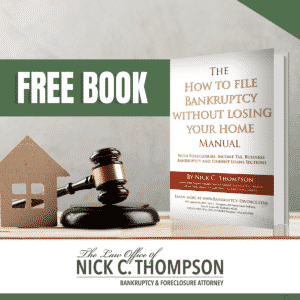In the 2010 case of Espinosa, the Supreme Court decided perfect notice to a student loan lender was not necessary. In some cases, a student loan can be hardship discharged in bankruptcy without first determining undue hardship in an adversary proceeding. An adversary proceeding is a separate lawsuit filed in your bankruptcy case. These adversary proceedings give the debtor a final order which allows the debtor to obtain damages from a creditor, strip a mortgage or obtain other rights. But a final order is also when the court issues a confirmation order for a Chapter 13 plan. Often the plan will modify what you owe to the creditor.
Student Loans in Bankruptcy – Hardship Discharge
If a bankruptcy court order confirming a hardship discharge becomes final, that is when the debt discharges. In the Case of Espinosa, the student loan creditor’s receipt of actual notice in the Chapter 13 plan “more than satisfied” the due process rights. A prior similar case that set out what due process was required is Mullane v. Central Hanover Bank & Trust Co.
⎆ When a student loan becomes a hardship.
A court almost always has to determine whether a student loan hardship exists. Even if the parties agree to a hardship discharge, the Court has to issue an order to that effect.
Of course, the bankruptcy court must at least inquire into whether the student loan is a hardship. If a student loan lender has actual notice and a bankruptcy court issues an order discharging the debt, then a summons and adversary proceeding for a hardship discharge is not always a requirement.
A student loan creditor can’t sit back and enjoy the fruits of being paid in a Chapter 13 bankruptcy according to terms without objecting to a hardship discharge and then later complain. United Student Aid Funds claims that because student loans are non-dischargeable, they are only dischargeable by an adversary proceeding.
You can bankrupt student loans sometimes. But child support, criminal court fines, and drunk driving accidents are never dischargeable. (Although you may repay them in Chapter 13 as Espinosa’s student loans were.)
When a court confirms a discharge of student loans even without an adversary proceeding, the creditor can’t just ignore it. Especially when the student loan creditor is not objecting. They regard such an order as final. Then, if they do not go through the appeal process on time they are permanent orders and they will not change.
This Court decision is especially crucial as another crack in the armor of student loan hardship discharge defenses. Hardship discharges in these adversary proceedings are very hard but not impossible to get. But, you have to know how to do it. Be sure to continue to do your thorough research about how to file for a student loan bankruptcy using the resources on this site.
Resources for Student Loans
 Other Related Information
Other Related Information
Chapter 7 Student Loan Hardship Discharge
Bankrupt or Discharge Student Loans in Bankruptcy
Hardship Discharge Student Loans
Discharge Private Student Loans in Bankruptcy
Student Loans in Chapter 13 Bankruptcy
Do you need help managing your student loan? Contact my office right away to start the conversation. Nick C. Thompson, Attorney: 502-625-0905



